
Mouse hower over: One of the survivors, poking around in the ruins with the point of a spear, uncovers a singed photo of Richard Stallman. They stare in silence.
"This," one of them finally says, "This is a man who BELIEVED in something."
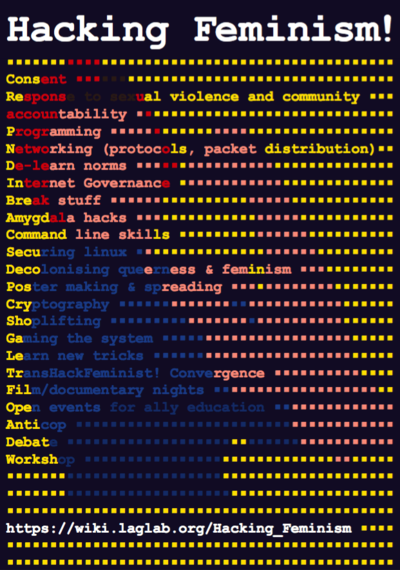
Overview: * Various Operating Systems * Differences between Free Software & Open Source Software * History of Unix * I run Linux * Some Linux distributions are more addictive then others * How hard can it be? / It shouldn't be so hard * My chosen distribution: Debian; best for beginners: Ubuntu * Links with/about feminism * Notes and further learning * SHORT VERSION, XKCD pictures only: https://becha.home.xs4all.nl/pictures-only.html
Summary: GNU/Linux is a free/libre and open source software operating system for computers. (FLOSS)
The operating system (OS) is a collection of the basic instructions that tell the electronic parts of the computer what to do and how to work.
Free, Libre and open source software (FLOSS) means that everyone has the freedom to use it, see how it works, and change it.
GNU/Linux is a collaborative effort between the GNU project, formed in 1983 to develop the GNU operating system and the development team of Linux, a kernel.
Linux is also used without GNU in embedded systems, mobile phones (such as Android) and appliances (such as WiFi routers, e.g. TP-Link), in servers and supercomputing sectors.

In this comic, Randall gives an overview of past, present and (speculatively) future of the operating systems running in his house at any given time. Notably, because Randall is fascinated by technology, he has had more than one OS running in his household since the mid '90's. The timeline tracks how Operating Systems have come and gone over the years, and the gradual shift from desktop Operating Systems to mobile can be observed. Beyond the present day, we see some of Randall's humorous predictions as to which technologies and companies will dominate the Operating System landscape in the future. It may be that the OS that is closest to the time-line is also the one he mainly uses during these extended periods.
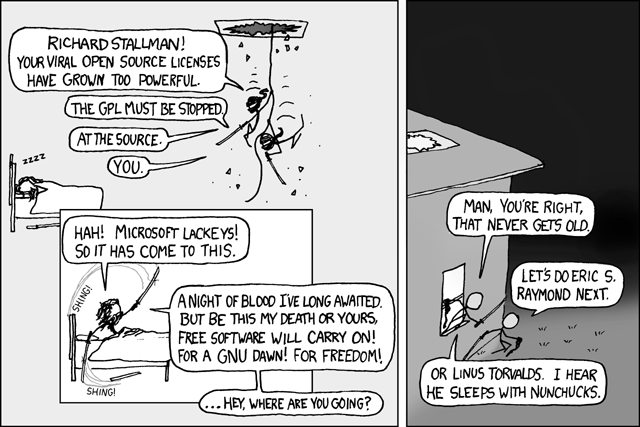
Richard Stallman, or rms after his handle, is an old-school hacker known these days primarily for establishing the Free Software Foundation and initiating the GNU Project in the early 1980s, which produced major portions of what would later be the GNU/Linux operating system. In this capacity, he's also known for being one of the most ardent and outspoken proponents of free software, sometimes called open source software. In fact, his advocacy is so emphatic and polemical that he has garnered active dislike from traditionalists who believe that software source code should be retained as a trade secret by its developer(s). Stallman has expressed that he did not even wish to be in a comic using the word Open Source, see the trivia section.
While this dislike may not rise to the level of hiring ninja assassins to remove him from the world, it is strong. The joke of the comic, as it also turns out, is that the two ninjas was just out to have a fun time teasing Stallman, and they seemed to know that Stallmans paranoia about Microsoft makes him sleep with no less than two katana swords near his bed. This type of swords were one of the traditionally made Japanese swords that were used by the samurai of feudal Japan. A ninja was a covert agent or mercenary in feudal Japan. Their covert methods of waging irregular warfare were deemed "dishonorable" and "beneath" the samurai-caste, who observed strict rules about honor and combat. So this makes sense in this comic with Stallman the samurai and the ninjas the lackeys of the oppressing Microsoft (at least in his mind). It also turns out that they specifically chooses a target for their raids that have reason to be paranoid of come larger companies that might send someone after them, and thus sleeps with weapons near their bed. Stallman has received a Katana due to this comic, see the trivia section.
GPL refers to the 'GNU General Public License', which is a copyright license written by the FSF that covers much GNU software and plenty of other free software besides. It stipulates that software so copyrighted must always be provided along with full source code, and that everyone in possession of such software is free to use, study, modify, and redistribute it for any purpose whatsoever (including sale or resale) provided they give due credit to any other contributing developers, also provide access to the complete source code, and retain all copyright notices.
Legally, this gives all users of such software exactly the same rights under copyright as the developer(s), and prevents any developers from ever taking away those rights from users, which is the defining feature of 'free-as-in-libre' software. It also has the effect of making all software derived from GPL software thereby also GPL, even if 'derived' merely means 'borrowed a few lines of code from'. Some (e.g. Microsoft's Steve Ballmer) have therefore argued that this makes GPL software behave as a kind of 'license virus', which spreads GPL-guaranteed freedoms to any software used in close conjunction with GPL'd software during development, such that businesses should actively avoid adopting free and open source software, so as not to jeopardize software developers' legal standing with regard to proprietary IP copyrights.
During the attack Richard Stallman begins to speak like he quotes an old play. For instance the wording "For a GNU dawn!" is pronounced "For a g'new dawn!", following the pronunciation of GNU, so it is a version of New Dawn, a sentence used often in fiction. He even gets annoyed when it turns out the ninjas just run away, he had clearly waited a long time to, even looking forward to, defending him self with his katanas.
Because as it turned out that the two "ninjas" made a prank with him, and they realized that they had so much fun out of Stallman that they plan to do more of these nightly raids even mentioning two other possible future targets on their way out of the window:
Eric S. Raymond is a famous hacker who wrote The Cathedral and the Bazaar and has been something of an unofficial spokesperson for open source as a software development methodology. The plan to prank Eric Raymond could be a bad one since he is an experienced martial artist, swordsman, and firearm enthusiast. However, this seems to be the attraction of these two "ninjas" as can be seen by what they seems to know about their other possible target:
Linus Torvalds is the creator of the Linux kernel, an free/open source operating system kernel inspired by the Unix kernel, which proved to be the final component that, combined with then pre-existing GNU system functions and userland components, produced the first fully free operating system, Linux. The plan to prank Torvalds would at first sound more boring as the mild-mannered Finn, while known to be strongly, abrasively opinionated, is otherwise mostly harmless. However, one of the ninjas seems to know otherwise since it is rumored that Linus sleeps with nunchucks in the same way that Stallman sleeps with two katana swords. The nunchaku is a traditional Okinawan martial arts weapon consisting of two sticks connected at one end by a short chain or rope.
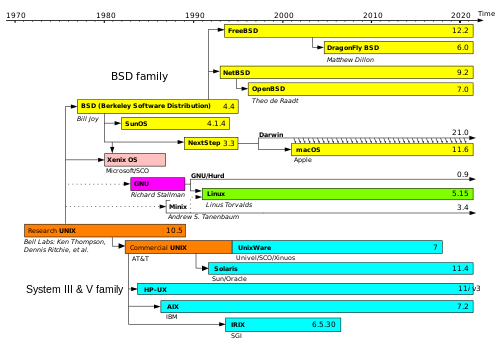
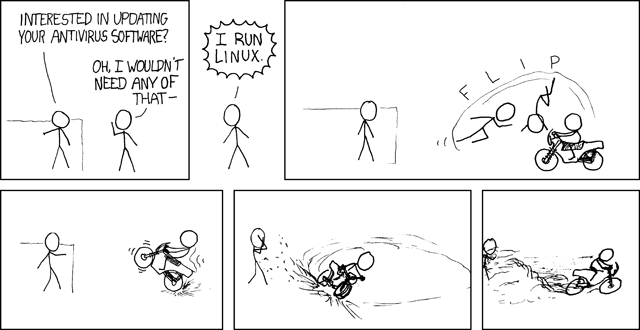
Best Buy is an American chain of electronics and media stores. As with many such big box shops, they only sell pre-bundled software and boxed pre-built hardware, where the computers on offer are either Macs or other PCs, usually pre-installed with some variant of the Mac OS X or Windows NT operating system families. Most personal computer hackers/enthusiasts (as opposed merely to workaday computer users) wouldn't be caught dead buying a pre-made computer, preferring instead to build their own using self-selected hardware components and install and configure their own preferred operating systems and software. As such, the subtext is that somebody buying a complete pre-packaged home computer system at Best Buy wouldn't know or care much about computers. The salesperson is trying to sell antivirus software to Cueball because selling such software (e.g. Norton or Kaspersky) to prospective Windows PC owners is generally a good sales tactic. The vast majority of all computer malware is engineered specifically to exploit Windows, and Windows' inherent anti-malware protection might most charitably be described with the phrase "lacklustre, but not as bad as before". Windows users therefore will want antivirus protection, especially for use on a brand new machine that will soon be connected up to the internet. Moreover, because the ecosystem of viruses and malware which thrive by infecting Windows PCs is constantly evolving (see 350: Network) and being redesigned to take advantage of new exploits and fool last-month's antivirus software, it is quite prudent for a Windows PC owner to always keep their malware protection absolutely up-to-date, and many such security suites need to be regularly renewed with new versions. While some viruses and malware can afflict Linux, in general UNIX and workalike operating systems of its type (e.g. BSD) are far more robust and secure than Windows, with fewer exploitable vulnerabilities; so, Cueball is confident (probably rightly so) that he will be fine without added security. Moreover, Linux is free software, so although malware protection usually isn't necessary for it, excepting for tasks requiring very high security standards (such as on servers and supercomputers), if extra protection is desired by the user it is generally easily obtainable, often gratis.
Back in 2007, after the commercial failure that was Windows Vista and with a stagnant Mac market, many in the Linux community believed that Linux would soon wipe out Windows as the operating system of choice for desktop PCs, after years of slow-but-steady growth. This explains the cheeky triumphalism of the final panels of the comic, in which Cueball hops on his quick, slick vehicle and speeds away. It's worth noting that
The title text makes sense in light of the fact that, like Linux, the software design of OS X (both are based on Unix, OS X through Darwin - see 676: Abstraction) limits the amount of harm that can be done by malicious software, and Macs thus also have fewer viruses and malware than Windows. Apparently, Mac and Linux users flock together just waiting for some salesperson to come along and mistake them for someone gullible enough to use Windows. This is taking the piss out of the smugness sometimes to be found among Mac and Linux users, who may view their preferred systems as hip and different from the "mainstream" Microsoft systems which they feel are manifestly inferior.
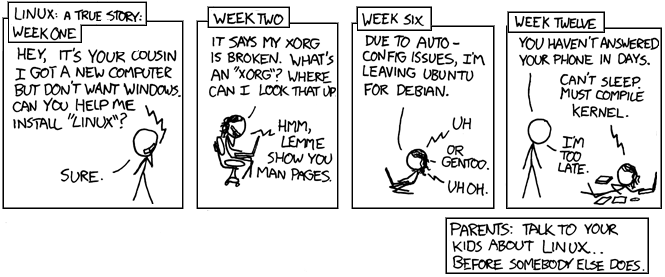
Cueball's cousin decides to install Linux on her new PC, and calls Cueball, whom she views as her personal Linux expert. The
overarching joke revolves around the fact that Linux, especially home PC-based GNU/Linux, is much more often used as a "hobby" OS,
as compared against a "productivity" OS such as Windows or OS X.
Large numbers of people use Windows or Mac by default, because it
came with their computer hardware when they bought it, and it already had the software suite they wanted to use installed along
with it. Linux, on the other hand, rarely comes pre-installed on PC hardware and generally must be deliberately chosen and
acquired; and while it can be set up to achieve efficient and productive workflow in virtually any area on PCs, because it often
must be consciously selected, installed, and configured by users, it tends to either attract or, in a few cases, create
individuals who take disproportionate pleasure in, and derive self-identification from, hacking the operating system itself.
Thus, many people who are Linux enthusiasts began by not really knowing anything about it other than that it's free of cost,
but the process of actually building Linux on their machines gradually lead them to take an increasing interest in it, which the
comic humorously likens to substance addiction.
Xorg (officially X.Org) is an implementation of the X Window System, a program responsible for the graphical display used on Linux. If it has configuration problems, which was quite common with some video card drivers back in 2008 (especially those for ATI Radeon cards), it is often difficult and/or painful to fix (see 963: X11). Man pages are manual pages for Unix-based operating systems and software, usually accessible online but also bundled with the software itself, that explain in simple unambiguous language what certain things are, how they work, and providing clear illustrations of their use.
Linux has many versions, called "distributions". Each distribution, or "distro", has a different look and feel, and different feature sets and design philosophies. Ubuntu is a very popular "beginner" version of Linux, designed to "just work" and be familiar/usable to people fresh out of Windows. Debian is a popular but somewhat more "advanced" distro, more traditionally "Unix-like" than Ubuntu, with a huge and diverse base of supported software that generally requires more Linux know-how to configure and use, or at least more eagerness to learn. Gentoo is a very advanced distro allowing for extreme customization and optimization but requiring extensive install and setup time. Because Cueball's cousin is fed up with Ubuntu trading functionality for ease-of-use, she decides to switch to Debian or maybe Gentoo, both of these successive options promptingCueball to fear that she may just be getting in deeper and deeper. ("Autoconfig issues" refers to 416: Zealous Autoconfig)
Some advanced users of Linux choose to compile their kernel from source; Gentoo requires this, and is customarily compiled locally. Source code is a computer program expressed in an easily human-readable format, often simply as text. However, source code cannot be run directly by a computer, and instead needs to be "compiled" into object code, a computer-runnable but human-unreadable low level code. A coder will generally hack a program in source code, then compile their source code so that the computer itself may run the program (see 303: Compiling). This means that with Gentoo, instead of downloading an already functional Linux system to install and run, users download the source code for the system, customize it to their own needs, then compile the code into a runnable version of the OS, all before they can begin to use the system. To many such advanced users, their installation of Linux is like a hobby sportscar: A never-ending project, constantly tweaked and cleaned and adjusted to improve performance, that spends far more time sitting around with its hood open than actually being used for its ostensible purpose.
In the final panel, Cueball's cousin has become addicted to Linux, and is lost in the flow of hacking her kernel to her liking, having forgotten whatever it was she originally purchased the new PC to do.
The [mouseover] text jokes about the bad support for many then-common Wi-Fi cards within Linux back in 2008.
It is likely that the last cautionary aspect of the comic, explicitly present in both its title and its conclusion, is sarcastic. Randall is clearly very fond of Linux and even a Linux and open source advocate. (See 272: Linux User at Best Buy as an example.) At the beginning of the comic, the cousin seems to barely know how computers work past very basic end-user functionality. After just a few weeks, she's become extremely advanced. Not only can she compile her own kernel, she does not do so by blindly following instructions. She does so in a critical and meaningful way. This high praise of Linux is most likely wrapped into a facetious tone of caution for comic reasons.

OpenBSD, an open source Unix operating system which, like some other Unix variants, is notoriously difficult to install and configure correctly, especially on home desktops with less common hardware profiles, and especially compared with the more popular Windows operating system. The [mouse over] text is a reference to OpenBSD's premium on security.
FreeBSD is a unixoid operating system for computers which is generally considered to require advanced skills. The question whether Linux or (Free)BSD is the preferable operating system is a question of almost religious belief to some. The comic takes a shot against FreeBSD by implying that one would only decide to install it when under the influence of alcohol.
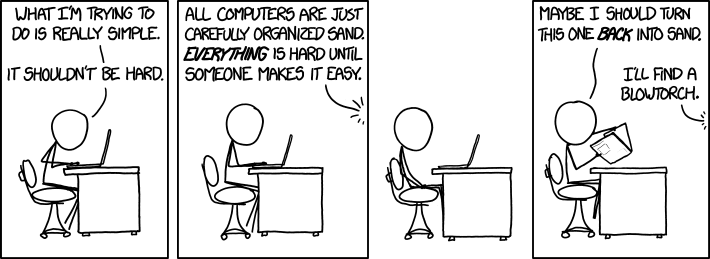
This comic refers to a sentiment sometimes expressed by computer users that "what I'm trying to do is really simple — it shouldn't be hard." The statement demonstrates an assumption that because the desired action is conceptually simple, it must therefore be simple to implement. There is a logic to this line of thinking, but in reality, as the off-screen character notes, a computer is a very complicated set of components which effectively can't do anything (simple or complex) until someone has programmed the functionality into it. Even more abstractly, a random silicon crystal can't do anything at all until someone has applied a complex industrial process to it that allows it to read and execute computer code in the first place.

http://geekfeminism.wikia.com/wiki/List_of_women_in_Open_Source https://wiki.techinc.nl/index.php/Ladies_Night#Gender_gap_in_tech https://wiki.techinc.nl/index.php/Female_experts https://wiki.techinc.nl/index.php/Ladies_Night#Role_models https://wiki.techinc.nl/index.php/Hackers_tribes#Internet_and_Capitalism https://wiki.techinc.nl/index.php/Ladies_Night#Women_and_hackers https://wiki.techinc.nl/index.php/Ladies_Night#Feminism http://www.genderit.org/articles/feminist-principles-internet Hacking Feminism: https://wiki.laglab.org/Hacking_Feminism
Notes: * (summary is from https://www.reddit.com/r/linux/comments/53ri0m/warning_microsoft_signature_pc_program_now/?st=ite7v90k&sh=506e9588) * Stallman's well-known opposition to the term "open source" stems from the fact that "open source" refers specifically to a methodology for software development involving allowing customers to actively participate in development and testing of software products by giving them access to in-development source code and soliciting feedback; as such, the term was first adopted as a means to promote free software ideas to business interests. In contrast, Stallman and the FSF view free software as a political issue concerning the basic freedoms that should belong to all computer users, and thus 'open source' as an appeal to software businesses misses the point of getting individuals to think about their rights as users. * In the Beginning was the Command Line, by Neal Stephenson, 1999 http://faculty.georgetown.edu/irvinem/theory/Stephenson-CommandLine-1999.pdf * COMPUTER OPERATING SYSTEMS AND THE CAR DEALERS http://www.icpug.org.uk/national/features/051120fe.htm * Yet another Debian fork: Devuan: https://lwn.net/Articles/685521/ * Creativity: • Blender • FOSSPhotography • GIMP • Krita • LibreDesign • LibreOffice • LibreStudio • LinuxAudio * SHORT VERSION, XKCD pictures only: https://becha.home.xs4all.nl/pictures-only.html * Hacking Feminism: https://wiki.laglab.org/Hacking_Feminism * The F Word: Fantastic Feminist Festival: http://thefword.nl/ Contact details: see BecHa's page